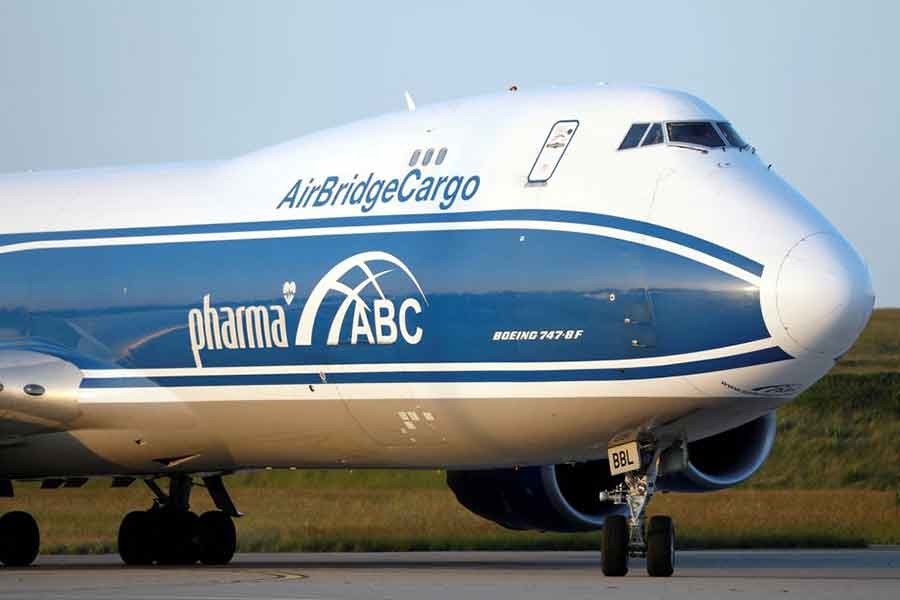Global supply chains, already hit hard by the pandemic, face new disruption and cost pressure as airspace bans following Russia's invasion of Ukraine raise concerns over a fifth of air freight.
Transport between Europe and north Asian destinations like Japan, South Korea and China is in the front line of disruption after reciprocal bans barred European carriers from flying over Siberia and prevented Russian airlines from flying to Europe, reports Reuters.
Airlines responsible for moving around 20 per cent of the world's air cargo are affected by those bans, Frederic Horst, managing director of Cargo Facts Consulting, told Reuters on Tuesday.
Germany's Lufthansa, Air France, Finnair and Virgin Atlantic have already cancelled north Asian cargo flights over closed access to airspace.
Major Asian carriers like Korean Air Lines and Japan's ANA Holdings are still using Russian airspace, however, as are Middle Eastern airlines.
Shares in German logistics firm Deutsche Post fell almost 3 per cent on Tuesday. Major airline shares fell around 1 per cent.
Pure cargo carriers like Russia's AirBridgeCargo Airlines and Luxembourg's Cargolux are subject to the bans in a move that could send air freight rates - already elevated due to a lack of passenger capacity during the pandemic - soaring further.
“The flights become more expensive due to the longer routes,” said Stefan Maichl, an analyst at Germany’s Landesbank Baden-Wuerttemberg.
“With more kerosene on board, the cargo capacity decreases. Freight rates could increase further as a result. “
In December, air cargo rates were 150 per cent above 2019 levels, according to the International Air Transport Association, spurring inflation that has rocked economies around the world.
Sanctions imposed on Russia in the wake of its Ukraine invasion are expected to further disrupt global supply chains.
Russia's AirBridgeCargo alone moves just under 4 per cent of global international air cargo, with most of that between Europe and Asia, Horst said.
"All up you could be looking at perhaps a quarter of air cargo between Asia and Europe needing to find alternate means of transportation," Horst said.
"Yields are high enough that flying a longer route via Southeast Asia, South Asia or the Middle East is an option, but it will still pull capacity out of the market."
E-commerce surged during the pandemic. Shipping container shortages and port bottlenecks led to more products being flown by air. Demand for air cargo last year was 6.9 per cent above 2019 levels, according to IATA.
Taiwan's EVA Airways said on Tuesday its cargo flights to and from Europe were operating normally and it would consider adding more services to meet market demand.
China Airlines, also based in Taiwan, said it would continue to pay attention to the global economic and political situation and flexibly adjust cargo capacity.
Asia-North America cargo routes are expected to be less affected than European routes, analysts say, because many carriers already use Anchorage, Alaska, as a cargo hub and stopover point.
Japanese automakers Toyota Motor Corp.T and Nissan Motor Co said on Tuesday they were keeping an eye on any disruption to supply chains as a result of what Russia calls its "special operation" in Ukraine.
US-based United Parcel Service Inc and FedEx Corp, two of the world's largest logistics companies, have halted deliveries to Russia. Deutsche Post said its DHL unit was halting inbound shipments to Russia.


